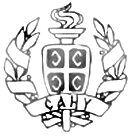Приказ основних података о документу
Обредне поворке вучари на Косову и Метохији као део нематеријалне културне баштине
Vučari ritual processions in Kosovo and Metohija as part of intangible cultural heritage
| dc.contributor | Војводић, Драган | |
| dc.creator | Ђурић, Драгана | |
| dc.date.accessioned | 2024-04-29T10:39:28Z | |
| dc.date.available | 2024-04-29T10:39:28Z | |
| dc.date.issued | 2023 | |
| dc.identifier.isbn | 978-86-7025-999-7 | |
| dc.identifier.isbn | 978-86-6184-020-3 | |
| dc.identifier.uri | https://dais.sanu.ac.rs/123456789/16559 | |
| dc.description.abstract | У раду се анализира структура и значај обредне поворке вучари као елемент нематеријалне културне баштине Срба на Косову и Метохији. Традиционално, обичај подразумева опход поворке људи с убијеним вуком. Испред сваке куће би вучари певали или изговарали вучарску песму после чега су их домаћини даривали да вуци не би нападали њихову стоку. Данас се на простору Сиринићке жупе вучарима називају учесници маскирне поворке која се организује у Белу недељу пред ускршњи пост. Савремена поворка се потпуно разликује од горе описаних вучара и чине је елементи типични за карневале и обредне поворке „покладни сватови“, тако да се у раду пажња посвећује и могућим путевима настанка овог обичаја. У корпус истраживања су ушле монографије и студије посвећене народној култури Срба и других балканских народа, записи Дигиталног звучног архива Балканолошког института САНУ и нека сведочења становника села Готовуше. | sr |
| dc.description.abstract | The paper analyses the structure and significance of the vučari ritual procession as an element of the intangible cultural heritage of the Serbs in Kosovo and Metohija. Traditionally, the custom involves a procession of people carrying a killed wolf. Vučari would sing or recite a vučari song in front of every house, after which the hosts would give them gifts so that wolves would not attack their livestock. Today, in the area of Sirinićka župa, the participants in the masked procession that takes place on White Sunday before Great Lent are called vučari. The contemporary procession is completely different from the above described vučari and consists of elements typical of carnivals and ritual processions of “pokladni wedding guests” – the paper also focuses on the possible paths of the origin of this custom. The corpus of the research included monographs and studies dedicated to the folk culture of Serbs and other Balkan peoples, records of the Digital Audio Archive of the Institute for Balkan Studies of the Serbian Academy of Sciences and Arts, and some testimonies of inhabitants of the Gotovuša village. | sr |
| dc.language.iso | sr | sr |
| dc.publisher | Београд : Српска академија наука и уметности | sr |
| dc.relation | Миграције и културни трансфери на Балкану | sr |
| dc.rights | openAccess | sr |
| dc.rights.uri | https://creativecommons.org/licenses/by-nc/4.0/ | |
| dc.source | Заштита, очување и афирмација српског културног наслеђа на Косову и Метохији / Protection, preservation and affirmation of the Serbian cultural heritage in Kosovo and Metohija | sr |
| dc.subject | вучари | sr |
| dc.subject | обредна поворка | sr |
| dc.subject | Покладе | sr |
| dc.subject | народна култура | sr |
| dc.subject | Срби | sr |
| dc.subject | Косово и Метохија | sr |
| dc.subject | vučari | sr |
| dc.subject | ritual procession | sr |
| dc.subject | poklade | sr |
| dc.subject | folk culture | sr |
| dc.subject | Serbs | sr |
| dc.subject | Kosovo and Metohija | sr |
| dc.title | Обредне поворке вучари на Косову и Метохији као део нематеријалне културне баштине | sr |
| dc.title | Vučari ritual processions in Kosovo and Metohija as part of intangible cultural heritage | sr |
| dc.type | bookPart | sr |
| dc.rights.license | BY-NC | sr |
| dc.citation.spage | 549 | |
| dc.citation.epage | 562 | |
| dc.citation.volume | II | |
| dc.type.version | publishedVersion | sr |
| dc.identifier.fulltext | http://dais.sanu.ac.rs/bitstream/id/65872/bitstream_65872.pdf | |
| dc.identifier.rcub | https://hdl.handle.net/21.15107/rcub_dais_16559 |

